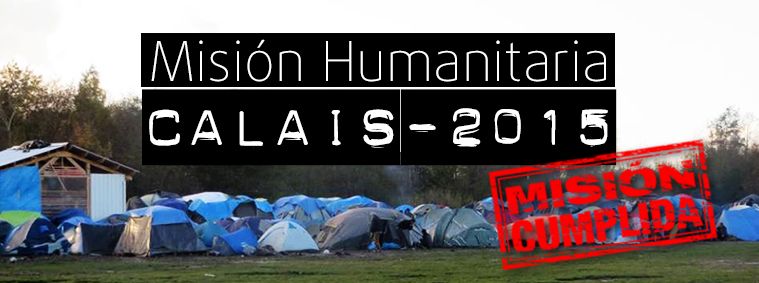Calais Mission 2015
Following the opening of the Eurotunnel in 1994, migrant workers started to establish settlements in 1999 in the city of Calais at the French end of the tunnel, with the intention of crossing the English Channel and entering the UK to apply for political asylum, including migrants from different nations who wanted a better life or who were fleeing from countries beset by armed conflict, giving rise to exponential growth in the migrant population over the years.
Following the Civil War in Syria, the presence of migrants and refugees in Calais increased dramatically, forcing the City Council to accommodate them in a disused landfill of approximately 14 hectares, with limited access to sewage and waste disposal and drinking water, among others. The camp now has a population of about 6,000 and new refugees continue to pour in.
To deal with this social emergency, the SAMU Foundation, Bridge 2 and SAMU’s Emergency Medicine School participated in an emergency mission, with the cooperation of Fundación la Caixa and Menarini Responsable. A local SAMU team was formed, led by Borja González de Escalada Álvarez, together with two doctors, Blanca Micheo McPherson and Óscar Hugo Martín del Barco, two nurses, Ignacio Guerrero Rodríguez and Andrés Rodríguez Holst and a jounalist, Cristina Díaz Aguilar.
Our team travelled to Calais in two vehicles, where they met up with the volunteers from Bridge 2 and performed multiple medical interventions in Calais, Paris and Dunkirk) and logistic operations such as building a canteen, distributing food and clothing, etc.
Date of the mission
- Name of the mission: Calais 2015.
- Collaborating organisations: Bridge2, La Caixa and Menarini.
- Country: France.
- Departure date: 8 November 2015.
- Return date: 18 November 2015.
- Population attended: mostly refugees from Syria, Afghanistan, Iran, Iraq and Kurdistan, among others.
- Number of contingents: 1.
- Number of persons from SAMU taking part: 6.
- Number of persons from BRIDGE: 15.
- Total number of participants: 21.
- Number of interventions: 474.
- On-base interventions: 361.
- Iterinant interventions: 113.




